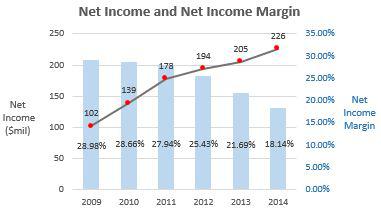Branding at a Crossroads
Today, a brand must appeal to the psyche of customers to make a connection. For example: many senior travelers want hospitality and service above all. The core seniors market does not typically care for technology. They don’t like answering machines, PCs and automation. Younger travelers, in contrast, like casual and tech-friendly hotels with convenience, where food and drinks is a priority. They prefer to stay in hotels that have the look, feel, and comfort of their own homes.
Targeting a market niche start at the design stage.
Starwoods created the ‘Aloft’ brand for the young entrepreneur market and designed its hotels to include a bar, a food and beverage center offering fresh bagels, fruits and drinks, an outdoor area serving light meals, a fitness center with swimming pool, wireless Internet access property-wide, and flexible meeting and function space. Guest rooms have 9-foot ceilings and oversized windows, a signature bed, a work space with an MP3 docking station, and a flat-panel TV. Bathrooms are furnished with Bliss amenities and walk-in oversized showers. Starwood plans call for 500 Aloft to be open by 2012 (average daily rate: $100 to $125).
Brands for Small Island Hotels
Small hotels often don't have the opportunity to rebuild for a market. Nevertheless, the market for differentiation is strong and the small hotel is often sought out, particularly in Europe, where chain brand penetration is low (i). Small hotels can tap into the booming market for Boutique hotels, where uniqueness and character are preferred over big brand names. Differentiation and personality are the key.
Building a strong brand requires use of all appropriate channels, but too much reliance on the OTA channels can be have very negative side effects. Choice hotels discovered it had created a monster by building up its business with Expedia. In re-negotiating its contract with Choice, Expedia suggested that its brand was more important and that Choice just had no option but to abide by its rules and demands. The widely known secret is that OTAs don’t want all the hotels in the world, so many are going to get left out. Its wise to be direct!
Brand Integrity in the OTA Channel
We have seen chain hotels make great progress in building their own brand marketing and direct business, reducing their dependence on the OTAs, like Expedia. (81% of bookings to major chains are now direct). The Chains understand that reliance on OTAs is not good for Brand integrity.
Brand Integrity is a measure of the cohesiveness of the brand message and your ownership of it. This integrity is influenced by your message and how you present it, the medium/channels you use, what you promise and what is expected.
Your brand is your differentiation & your personality. How you market will influence your relationship with guests, their loyalty and your ownership of both the brand and the business.
See more on
The Medium and the Message.
First be clear and then be seen
Branding requires being clear about your market and your USP and putting this across in words and pictures, with the right emotion and the right process in the right place. Next, get the message out with an appropriate call to action on all advertising, Search Engine Optimisation (SEO) and with appropriate exposure on the right marketing channels.
Shoppers need a reason to remember you and to return to complete their shopping experience. Create stickiness and be in true shopping channels, like
Barbados.org,
BarbadosVacationSpecials.com and
BarbadosHolidayThemes.com, where shoppers can add you to their shopping lists and compare options. Shoppers must be able to visit your website and take action on interest; get a quote, save it or buy at any point.
The AXSES Travel Shopping Network is unique in its ability to provide easy access to your website at many strategic decision points. AXSES also provide many POS opportunities with bookable-maps, bookable-ads, bookable-banners, bookable-lists, etc. (
click here for details). In fact, the entire AXSES network is bookable, every advertisement, listing and link is or will be driven by
arcRes Tourism Bookings & Reservations System.
Branding with fair pricing and revenue management
A recent
Cornell University study shows that travelers are confused by hotel pricing and often see it as unfair. This is not good for your brand! Many hotels now offer travelers a choice of rate plans and full disclosure. Many chains offer best rate guarantees.
We recommend that you manage rates and expectation with loyalty programs and special group pricing. Travel shoppers want to act (get a quote, save it, add it to a list, buy it) when they are ready, and they want to know they are getting
a fair price.
AXSES is now introducing a new collaborative marketing solution, where we help tourism suppliers use technology to brand and market their products, get exposed and close more direct sales!!
For more information on how you can build and sustain your brand - please contact iclayton 'at' axses.net
More about AXSES: see
http://axses-travel.com |
arcRes Marketing
i. The brand penetration index that measures the percentage of hotel rooms that belongs to a flag out of the total capacity, is over 70% in the US, while France is the market with the highest brand penetration index in Europe, with less than 30%.


